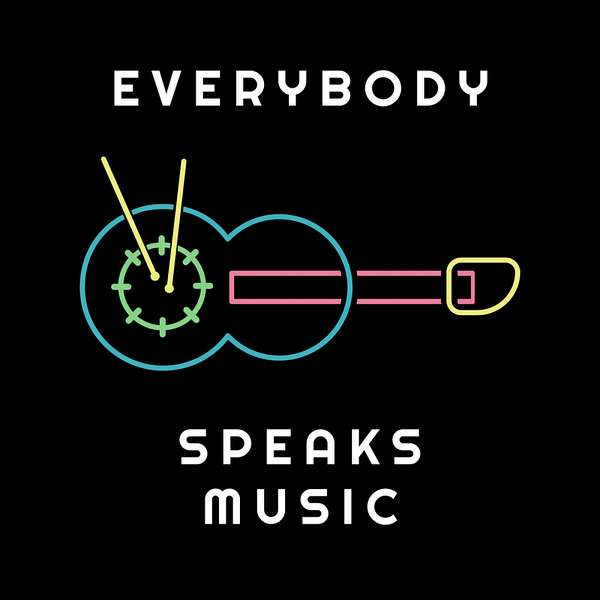
Everybody Speaks Music
Have you always wanted to learn an instrument but feel you’ve waited too long and now it’s too late?
Are you frustrated with your lack of progress and feel like giving up?
Or maybe you loved to sing, until somebody told you, “You can’t sing”.
If music was meant to be played, why does it feel like work for so many of us?
Please join us as we share weekly stories, lessons and interviews from people just like you who are overcoming challenges and obstacles in their own musical journeys. Musicians of all levels and ages are welcome here because, Everybody Speaks Music!
Everybody Speaks Music
Why Do We Quit Music Lessons? Part 1
In today's episode, we cover the first three chapters of our 13-chapter series, aiming to understand the reasons behind students quitting music lessons.
We also recommend a resource that inspired today's episode, offering a deeper dive into the subject.
https://www.researchgate.net/publication/272886402_Students_who_quit_music_lessons_recent_research_and_recommendations_for_teachers
Our goal is to inspire individuals to continue growing as musicians in a way that best suits their needs, tastes, and artistic desires.
Todays episode covers sections 1-3
1: Why Do Students Quit Music Lessons
2: The evidence
3:Benefits Of Music Lessons
Future episodes in this series will cover:
4: Teachers Point Of View
5: Students Point Of View
6: Motives and Motivation
7:Teacher Characteristics
8:Family Socioeconomic Status
9: Parental Support & Home Environment
10: Self-Efficacy, and Self-perception
11: Practicing and Achievement
12: Research Based Recommendations for Teachers
13: Additional Ways To Support A Positive Outcome For Music Students
1: Why Do Students Quit Music Lessons
- Music teachers recognize that most students will eventually stop taking music lessons.
- Reasons for stopping can include achieving primary goals or quitting prematurely.
- Premature dropouts can have financial implications for the teaching profession and prevent students from experiencing the full benefits of music learning.
- Researchers have identified several factors that contribute to student dropouts, including:
- Initial and continuing motivation
- Practicing habits and strategies
- Teacher and family characteristics
- Parenting styles
- Students' self-concept and expectations for success.
- The article aims to review research studies on why students quit music lessons prematurely and how teachers can identify at-risk students and prevent attrition in their studios.
2: The evidence
- Two large-scale studies conducted more than 20 years ago documented a clear trend in student dropouts as they grow older.
- One study conducted by Daniel Stino gathered information from hundreds of independent music teachers and reported a sharp drop in students taking private lessons as they grow older.
- Another study conducted by Music Teachers National Association in 1990 documented a large decline in studio enrollment between elementary and secondary school.
- While there are no recent large-scale studies on lesson dropout rates, anecdotal evidence suggests that this trend still exists today.
- It is important for music teachers to be aware of this trend and consider strategies to retain students as they grow older.
3: Benefits Of Music Lessons
- Prematurely dropping music lessons prevents students from reaping the benefits of music study, which have been researched and found to be numerous.
- Personal benefits of studying music include skill acquisition and development, personal growth, fulfilling a dream, and personal pleasure.
- Children and parents perceive benefits such as development of discipline, concentration, and self-esteem from music study.
- Studies have shown academic achievement, civic engagement, and personal benefits of music study for children and young people.
- Arts and music education in childhood predicts the rate of participation and attendance of cultural events in adulthood, making it a vital element in the sustainability of a healthy and diverse cultural ecosystem in the nation.

